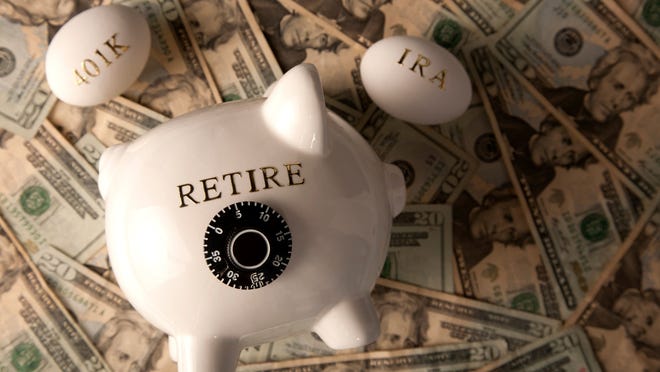Withdraw money in advance from 401 (K) and IRAs without penalty? Is it a good idea?

As a result of the sudden COVID-19 outbreak, unemployment rate increased dramatically, and U.S. residents are constrained by unemployment and living expenses. One of the policies that Congress introduced at the end of March was that Americans could now withdraw up to $100,000 from their personal retirement accounts, including 401 (K) and individual retirement accounts, without penalties.
This provision is known as the "COVID-19 Related Withdrawal" clause, which will only be in effect ubilate in 2020.
Withdrawal Regulations before the Pandemic
Before the outbreak, a fine would apply if money was withdrawn from a 401 (K)s account before the age of 59.5. The amount of the penalty is 10% of the amount withdrawn. At the same time, 20% of the tax is automatically withheld from this expense. Now, these rules, which have been in place for years, have changed in 2020.
Who is eligible for penalty-free withdrawals?
The most immediate is that if we ourselves, our spouses, or those who depend on us for life and upbringing, are diagnosed with THE exception of COVID-19, then we can avoid fines to withdraw money. The "COVID-19-Related Withdrawals" clause extends this most basic provision and further expands the scope of penalty-free withdrawals. According to the IRS's June 19 announcement, any individual, spouse or family member of an individual who has experienced the following "adverse financial situation" due to COVID-19 may withdraw the money without penalty:
Being quarantined, on leave, or being laid off by reduced work hours has been eliminated, delayed, or our income (including self-employment income) reduced due to a lack of child care and a reduction in business hours due to an outbreak, or the discontinuation of business, which greatly expands the scope of penalty-free withdrawals, even if we are still at work, we may withdraw money from our personal pension account in advance under the "COVID-19 Outbreak-Related Withdrawals" clause.
Should I take money from my account?
While the IRS further specificized the "COVID-19 Outbreak-Related Withdrawals" clause in June, that doesn't mean all qualified people are encouraged to use the money. Is it a good idea to take money in advance? What are the negative consequences for us?
The following factors are worth careful consideration before taking the money.
1: Impact on retirement income
Every penny we take out early from 401 (k) or IRAs will have a direct impact on our income after retirement.
If there's 100,000 from 401 (K) or IRAs, then we're taking 10,000 out of it to pay various bills. Although the money is free of charge, if we don't return it, then the tax rebates that came out when the money was deposited may have to be calculated from the new ones, and we will lose time to bring us long-term cumulative benefits.
2: May sell at the wrong time
The vast majority of people's 401 (K)s or IRAs retirement accounts have opted for mutual funds or other investments that participate in the market.
If you want to withdraw money from your retirement account early, it means we need to sell these investments in advance. And selling these investments in a situation where the market has experienced a sharp fall means that we accept the current losses.
In the first quarter of 2020, the Standard and Poor's 500 index experienced the biggest quarterly decline in history. And one thing is certain: as long as we don't sell, we don't have a real loss. Only when we actually sell will we have an actual loss.
Summary
While the IRS and Congress provided us with an option for a source of funding during the outbreak, using the money in our retirement account should be our last resort. If you're planning to take advantage of this opportunity without a fine and take out a sum of money to spend in advance, it's not worth advocating. If the money can be used as an emergency to ease the pressure on high-interest debt, or to pay off a mortgage or pay rent, or to pay for a family's necessary food or medicine, the money can serve as a relief.
If it is true that an early withdrawal is made, one way to minimize the negative impact in the future is to withdraw only the amount of money that is absolutely necessary and repay it within three years - the sooner the better.



